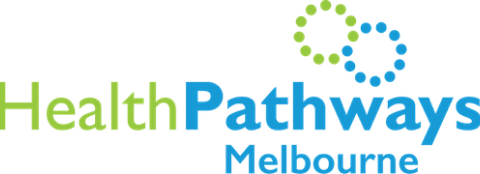Maximising cancer screening during COVID-19: a 2021 QI project for general practice
The COVID-19 pandemic delayed patients’ screening and diagnostic appointments.

In 2020, diagnostic procedures for all cancer types were 8 per cent lower than expected. There has also been a 32 per cent decrease in hepatitis B and C serology tests and a 17 per cent decrease in hepatitis B monitoring tests.
An early diagnosis can lead to a better prognosis. So, these decreases have significant public health implications for at-risk population groups and the general community.
General practice is central to increasing cancer screening participation rates. Research has found that use of GP-endorsed letters, recall and reminder systems, and enhancement of clinical information systems are key drivers to increasing cancer participation rates.
About the project
In 2021, North Western Melbourne Primary Health Network partnered with 37 local general practices, Cancer Council Victoria, VCS Foundation and the Victorian Department of Health to boost screening rates for bowel cancer, human papillomavirus (HPV) self-collection, hepatitis B and hepatitis C.
Practices built skills and implemented activities to proactively contact patients to encourage screening.
The objectives of the project were to:
- increase the proportion of GP-ordered National Bowel Cancer Screening Program (NBCSP) kits
- increase the number of HPV self-collection tests completed for eligible patients
- increase the proportion of patients with risk factors screened for hepatitis B or C
- increase the proportion of Aboriginal and Torres Strait Islander and culturally and linguistically diverse (CALD) identification on cervical screening pathology request forms.
All practices were required to participate in increasing Aboriginal and Torres Strait Islander and CALD identification on cervical screening pathology forms throughout the project. Practices were able to choose the other objective they wished to focus on.
What was involved?
- One 2-hour education session delivering:
- a general update on the three national cancer screening programs, and liver cancer delivered by VCS Foundation and partners
- ‘Asking the question’ training to assist with identifying Aboriginal and Torres Strait Islander and CALD patients.
- Learning workshops hosted by Cancer Council Victoria and VCS Foundation to provide an understanding of quality improvement methodology and to support sustainability of practice improvements. These were conducted with other practices who were working on the same chosen program area.
- Dedicated support from a NWMPHN project officer to support each practice’s selected quality improvement activities throughout the project.
Benefits for general practices
- An incentive payment of $10,000 (+GST) for participating practices that completed the program.
- Access to GoShare and 200 SMS credits for selected screening programs.
- RACGP CPD points.
- Facilitated learning workshops with Cancer Council Victoria, VCS Foundation and other subject matter experts.
- Dedicated support from a NWMPHN project officer.
- Opportunities to share, network and connect with other practices involved in the project.
- Participation in this facilitated quality improvement project contributed to meeting the requirements for the Practice Incentives Program Quality Improvement Incentive.
Project status
This project has now finished in the NWMPHN region but was expanded to all other Victorian PHN regions in 2022.
HealthPathways Melbourne provides clinical advice and easy-to-follow information about referral services. If you do not have access to HealthPathways, please contact info@healthpathwaysmelbourne.org.au









